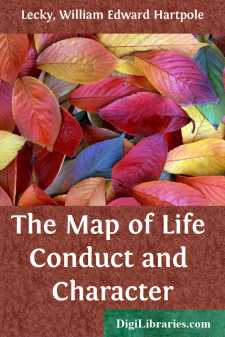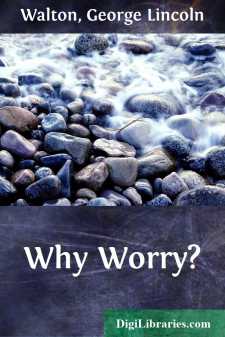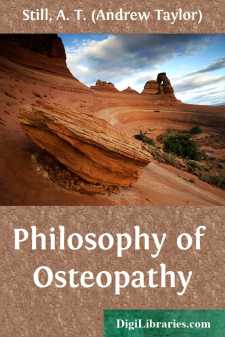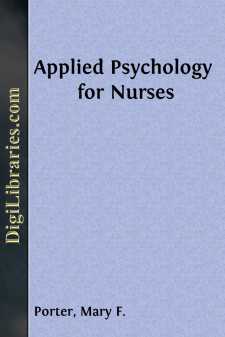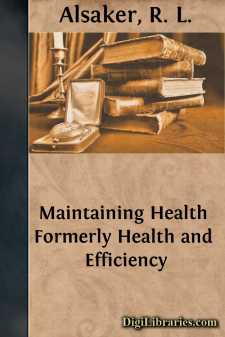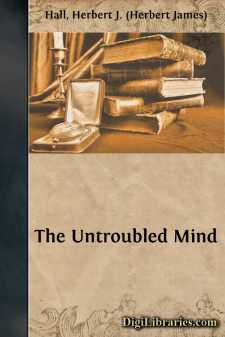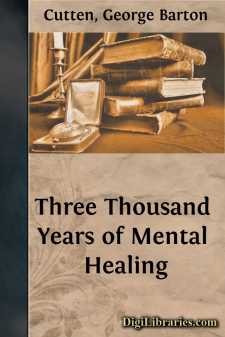Categories
- Antiques & Collectibles 13
- Architecture 36
- Art 48
- Bibles 22
- Biography & Autobiography 813
- Body, Mind & Spirit 142
- Business & Economics 28
- Children's Books 17
- Children's Fiction 14
- Computers 4
- Cooking 94
- Crafts & Hobbies 4
- Drama 346
- Education 46
- Family & Relationships 57
- Fiction 11829
- Games 19
- Gardening 17
- Health & Fitness 34
- History 1377
- House & Home 1
- Humor 147
- Juvenile Fiction 1873
- Juvenile Nonfiction 202
- Language Arts & Disciplines 88
- Law 16
- Literary Collections 686
- Literary Criticism 179
- Mathematics 13
- Medical 41
- Music 40
- Nature 179
- Non-Classifiable 1768
- Performing Arts 7
- Periodicals 1453
- Philosophy 64
- Photography 2
- Poetry 896
- Political Science 203
- Psychology 42
- Reference 154
- Religion 513
- Science 126
- Self-Help 84
- Social Science 81
- Sports & Recreation 34
- Study Aids 3
- Technology & Engineering 59
- Transportation 23
- Travel 463
- True Crime 29
The Science of Being Well
Description:
Excerpt
CHAPTER I.
In the personal application of the Science of Being Well, as in that of the Science of Getting Rich, certain fundamental truths must be known in the beginning, and accepted without question. Some of these truths we state here:—
The perfectly natural performance of function constitutes health; and the perfectly natural performance of function results from the natural action of the Principle of Life. There is a Principle of Life in the universe; it is the One Living Substance from which all things are made. This Living Substance permeates, penetrates, and fills the interspaces of the universe; it is in and through all things, like a very refined and diffusible ether. All life comes from it; its life is all the life there is.
Man is a form of this Living Substance, and has within him a Principle of Health. (The word Principle is used as meaning source.) The Principle of Health in man, when in full constructive activity, causes all the voluntary functions of his life to be perfectly performed.
It is the Principle of Health in man which really works all healing, no matter what "system" or "remedy" is employed; and this Principle of Health is brought into Constructive Activity by thinking in a Certain Way.
I proceed now to prove this last statement. We all know that cures are wrought by all the different, and often opposite, methods employed in the various branches of the healing art. The allopath, who gives a strong dose of a counter-poison, cures his patient; and the homeopath, who gives a diminutive dose of the poison most similar to that of the disease, also cures it. If allopathy ever cured any given disease, it is certain that homeopathy never cured that disease; and if homeopathy ever cured an ailment, allopathy could not possibly cure that ailment. The two systems are radically opposite in theory and practice; and yet both "cure" most diseases. And even the remedies used by physicians in any one school are not the same. Go with a case of indigestion to half a dozen doctors, and compare their prescriptions; it is more than likely that none of the ingredients of any one of them will be in the others. Must we not conclude that their patients are healed by a Principle of Health within themselves, and not by something in the varying "remedies"?
Not only this, but we find the same ailments cured by the osteopath with manipulations of the spine; by the faith healer with prayer, by the food scientist with bills of fare, by the Christian Scientist with a formulated creed statement, by the mental scientist with affirmation, and by the hygienists with differing plans of living. What conclusion can we come to in the face of all these facts but that there is a Principle of Health which is the same in all people, and which really accomplishes all the cures; and that there is something in all the "systems" which, under favorable conditions, arouses the Principle of Health to action? That is, medicines, manipulations, prayers, bills of fare, affirmations, and hygienic practices cure whenever they cause the Principle of Health to become active; and fail whenever they do not cause it to become active. Does not all this indicate that the results depend upon the way the patient thinks about the remedy, rather than upon the ingredients in the prescription?
There is an old story which furnishes so good an illustration on this point that I will give it here. It is said that in the middle ages, the bones of a saint, kept in one of the monasteries, were working miracles of healing; on certain days a great crowd of the afflicted gathered to touch the relics, and all who did so were healed. On the eve of one of these occasions, some sacrilegious rascal gained access to the case in which the wonder-working relics were kept and stole the bones; and in the morning, with the usual crowd of sufferers waiting at the gates, the fathers found themselves shorn of the source of the miracle-working power....




